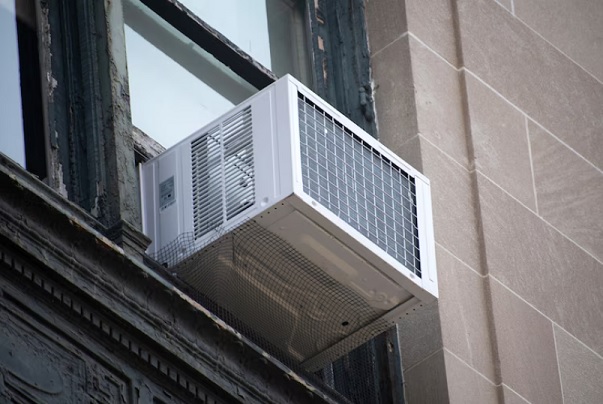
"The heat is coming for everybody," Andrew Dessler, a professor of atmospheric sciences at Texas A&M University, said as one of the season's earliest-onset heat waves scorches the United States.
As officials heed heat wave warnings across the country, forecasting what could become another hottest year on record, air conditioning units whirr and utility bills rise.
This week, dangerously high temperatures hit 14 states across the Midwest and Northeast, with New York City expecting a record-breaking, five-day heat wave with temperatures above 90 degrees, according to the National Weather Service.
While air conditioning can certainly mitigate the dangers of extreme heat, experts say the threat of heat-related illnesses and death is present if you're unable, even with AC, to maintain a cool enough room temperature to regulate your body's temperature."Many people who die of extreme heat die inside their homes," Jaime Madrigano, a public health researcher with Johns Hopkins University, told ABC News. "Many of those people are not adequately running air conditioning when they succumb to heat-related deaths"
In 2023, extreme heat was linked to over 11,000 deaths and approximately 120,000 emergency room visits in the U.S., according to the Centers for Disease Control and Prevention (CDC).
Madrigano is continuing a study that began last summer in New Orleans, Louisiana, funded by the National Institutes of Health, that recruits participants to take temperature and humidity measurements inside their home, to see what daily heat levels they're experiencing during the summer.
The researchers then use that data to analyze how those temperatures change throughout the day, as well as what health impacts related to sleep, mood and physical discomfort the participants are experiencing.
"Very blunt preliminary data can see that even with air conditioning, many people are not able to maintain what is a comfortable temperature in their home environment," Madrigano said, adding a fourth of the participants recorded inside temperatures well over 80 degrees Fahrenheit.
Some barriers to adequate air conditioning include poorly functioning units and financial constraints that make it difficult to pay utility bills, according to Madrigano.
New Orleans broke heat records in 2023, with over 10 excessive heat alerts issued by the National Weather Service (NWS). The unrelenting summer saw triple-digit temperatures, with humidity that made the climate feel like it was over 115 degrees Fahrenheit, according to the government agency.
"It's really important to recognize heat as a hazard," Dr. Leah Schinasi, an environmental and occupational epidemiologist at Drexel University, told ABC News.

